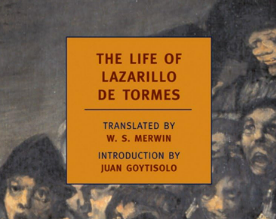Chapter II: How Lazaro Embarked at Cartagena
byChapter II: How Lazaro Embarked at Cartagena begins with a quiet sense of desperation masked by hope as Lazaro leaves behind yet another chapter of suffering. Mocked for his ragged clothes and treated as little more than a vagrant, he faces ridicule with an inward resolve. He believes that endurance, no matter how bitter, might yet bring him closer to dignity. With nowhere else to turn, he boards a ship docked at Cartagena, lured by the thought of escape and renewal. The harbor, loud and bustling, gives him a brief sense of freedom. But once the ship departs and the sea surrounds them, his optimism quickly meets the raw force of nature. A violent storm strikes, and panic spreads faster than the waves.
As thunder shakes the vessel and water slaps against the hull, passengers scream, pray, and confess sins aloud. Lazaro, ever observant, notes the chaos not with terror but with curiosity. He slips away from the main deck and hides in the hold, where barrels of food and wine wait untouched. While others cry out for salvation, he eats and drinks, reasoning that if death must come, he may as well face it well-fed. His logic, though irreverent, carries a strange wisdom—starving won’t stop the sea. He watches as men make false promises to God and women cry for forgiveness from ghosts of their past. Meanwhile, he secures himself in the shadows, treating the storm not as punishment but as another test of his will.
Among the passengers is a corporal, weakened and pale, who begs to confess a final sin before the storm ends him. Lazaro, seeing no priest nearby, offers to listen, and does so with a calm that borders on comic relief. The man mutters something inaudible, and Lazaro, guessing its weight, absolves him with a few kind words and a pat on the chest. This improvised sacrament, though unorthodox, brings peace to the dying man. Lazaro smiles not out of cruelty, but from the knowledge that sometimes kindness doesn’t follow rules. In the darkest of places, his humanity shines through, rough-edged and improvised as it is. He gives the man what he can—a small comfort before silence.
When the ship begins to break apart, Lazarillo feels the water rising, but his stomach is full, his body warmed by stolen wine, and his fear oddly subdued. He jokes to himself that perhaps the food will weigh him down so he sinks faster and suffers less. Even as others scream and scramble, he floats between laughter and fatalism, too used to misfortune to panic now. The wreck is chaotic, yet in its violence, there’s a strange order—each person clings to what they know, and Lazarillo clings to his ability to adapt. His journey from the deck to the depths becomes a parable in itself, not of divine punishment, but of survival shaped by wit rather than piety. He doesn’t see saints in the waves, only poor fools who expected fairness from the sea.
As dawn creeps in, the sea calms, and what remains of the ship drifts in silence. Survivors are few, and Lazarillo is among them—not because he was brave, but because he was clever. He didn’t waste breath on screaming or prayer. He preserved his energy and watched for his moment. That choice, made in the hold while chewing salted meat and sipping cheap wine, becomes the reason he sees the sun rise again. His survival is not dramatic but practical, grounded in a lifetime of learning how to endure. The sea offered no salvation, only a stage. And once again, Lazaro lived not by strength, but by his unmatched instinct to outlast the storm.
His recollection of these events is told with the same dry humor that defines him, sharpening the edge of his satire. He critiques not the storm, but the people who thought morality would save them from it. In his world, nature does not care for virtue, and fate favors the alert. His escape from the wreck becomes more than a story of luck—it is a reflection of how life rewards those who think sideways when others move straight. Lazarillo, ever the outsider, thrives not because he believes in grace, but because he knows how to live in a world where grace rarely arrives.

